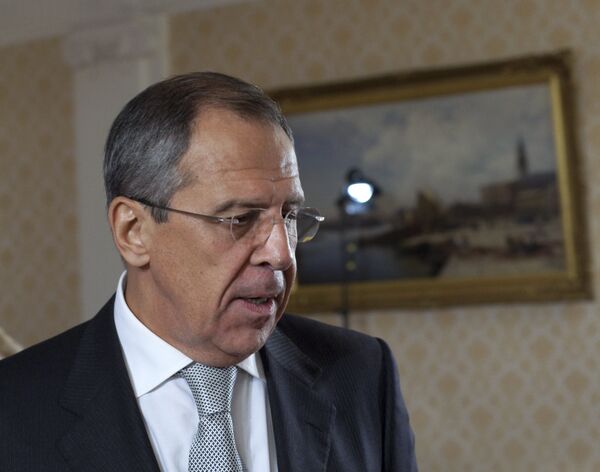Russia's foreign minister called on Friday military cooperation with NATO "mutually beneficial."
"Good opportunities are opening up to promote interaction with NATO in the military and technological sphere, first of all regarding the modernization of Mi helicopters. Such cooperation is mutually beneficial," Sergei Lavrov told journalists after a meeting of the Russia-NATO Council in Brussels.
He said that by resuming full-fledged cooperation with NATO, Russia was not trying to avoid discussions of issues on which positions differ.
"These include plans to expand the alliance, the fate of the regime to control conventional armaments in Europe, and military infrastructure coming closer to Russian borders. We have outlined our concerns in detail. We hope our partners have heard them," the foreign minister said.
Lavrov also said Russia would continue ensuring railroad and air transit of cargos to Afghanistan as part of assistance to NATO.
"We have an agreement with NATO and its members, including France, Spain, Germany; the U.S. recently also concluded an agreement with us - we will continue to render this support," he said.
Lavrov also said Russia would keep rendering humanitarian assistance and infrastructural support to Afghanistan.
He dismissed fears that a new European security treaty, whose draft has been submitted by Russia, would give Moscow the right to veto NATO decisions.
"There is no hidden meaning in the Russian draft, it contains no attempt to appropriate the right of veto on NATO activity," he said.
Russian President Dmitry Medvedev proposed drawing up a new European security pact in June 2008, and Russia published a draft of the treaty on Sunday, sending copies to heads of state and international organizations, including NATO.
Foreign ministers of NATO's 28 member states agreed on Friday to conduct a revision of common security threats jointly with Russia.
NATO Secretary General Anders Fogh Rasmussen said Friday the Russia-NATO Council approved all three working documents at a meeting of foreign ministers in Brussels.
The documents include an instruction to start a review of common threats, a working program for 2010 including stepping up military cooperation, and measures to improve the Council's structure and operations.
Speaking on Russia's security pact draft, Rasmussen said it would be discussed more by the Organization for Security and Cooperation in Europe than by NATO.
"The ministers said they are open to discuss it, but the OSCE remains the primary forum for that discussion," he told journalists.
BRUSSELS, December 4 (RIA Novosti)


